The Tokyo Tech Academy for Convergence of Materials and Informatics (TAC-MI) held its 4th International Forum at Tokyo Bay Makuhari Hall in Chiba City, Chiba Prefecture from December 5 to 7, 2022.
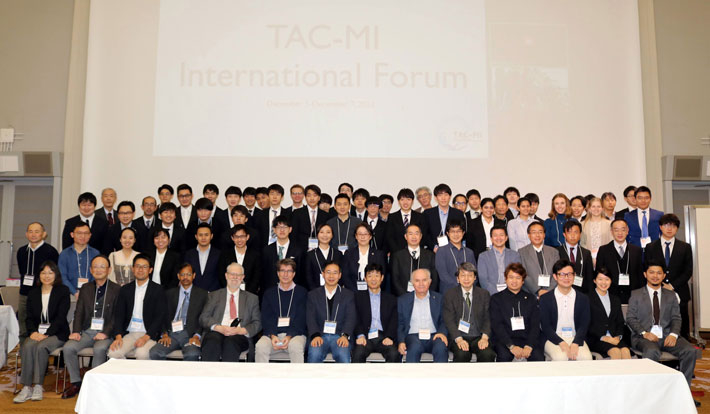
TAC-MI holds the International Forum once a year with the aim of improving international communication skills through English presentations to a diverse audience of students, academics, and industry players. This year, twenty-two 1st-year doctoral students and seventeen 2nd-year doctoral students presented their research achievements to the audience in English. Eight overseas doctoral students supervised by TAC-MI’s international advisors were also present throughout. In total, approximately 120 participants including industrial collaborators, TAC-MI program staff members, and TAC-MI students joined the forum. This event was held in hybrid format for both in-person and online participants.
Current research presentations by TAC-MI’s 1st-year doctoral students
On December 5 and in the morning on December 6, all 1st-year doctoral students gave presentations under the guidance of TAC-MI’s 2nd-year doctoral students who chaired the session. Each 15-minute presentation was followed by a 5-minute Q&A session in English. These research presentations were also part of the TAC-MI Qualifying Examination, a critical checkpoint in the TAC-MI curriculum. Participating students confidently presented the significance and achievements of their research and, after the presentations, actively engaged in Q&A sessions with the audience.
Presentations by TAC-MI’s 2nd-year doctoral students and overseas doctoral students
In the afternoon on December 6 and in the morning on December 7, seventeen of TACMI’s 2nd-year doctoral students and eight overseas doctoral students gave presentations on their research. Each 6-minute presentation was followed by a 4-minute Q&A session.
TAC-MI’s 2nd-year doctoral students provided presentations about the progress of their TAC-MI Self-Designed Theses. For the Self-Designed Thesis, students choose a topic different from that of their dissertation and conduct research on their own initiative. They present their research findings upon completion of their doctoral degree program to faculty members at TAC-MI who review the presentations. Through this process, students acquire the ability to conduct unique research independently based on new ideas supported by knowledge of materials science and information science, transcending their individual specializations. TAC-MI students present their research progress at either an event in June or the International Forum in December during the second year of their doctoral program.
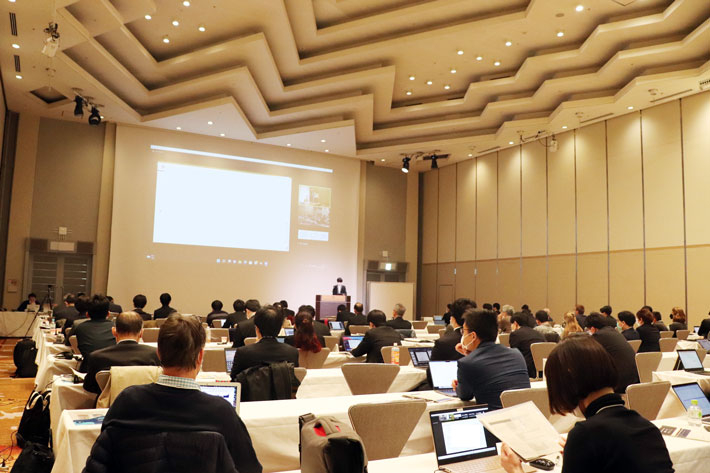
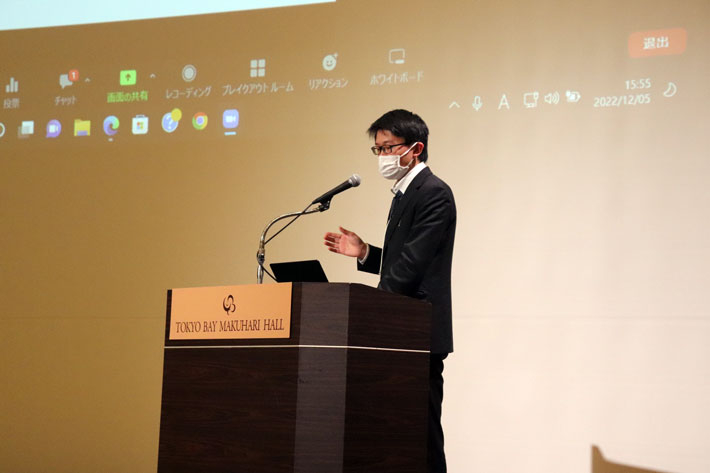
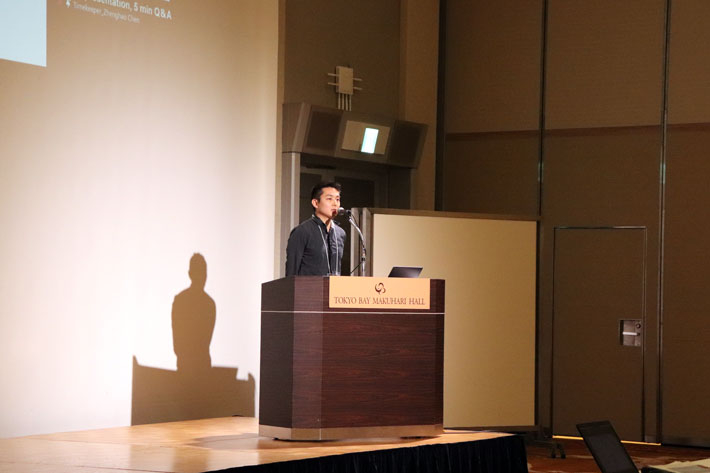
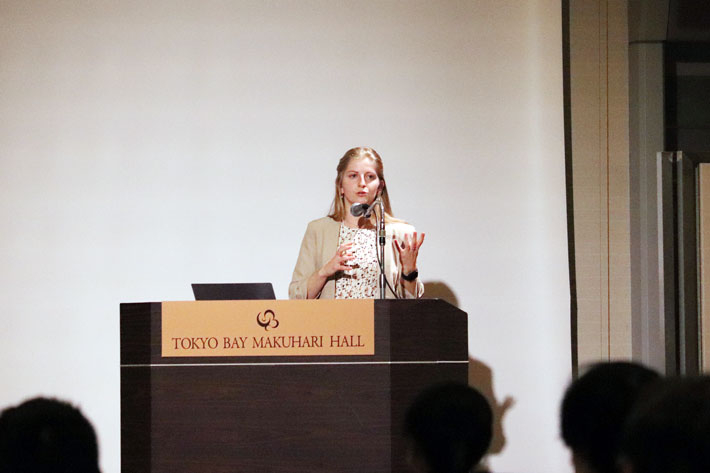
Research presentations by doctoral students
Lectures by overseas advisors
In the morning on December 6 and on December 7, world-leading researchers who cooperate with TAC-MI provided lectures and introduced some of their recent research findings.
Speakers and lecture titles
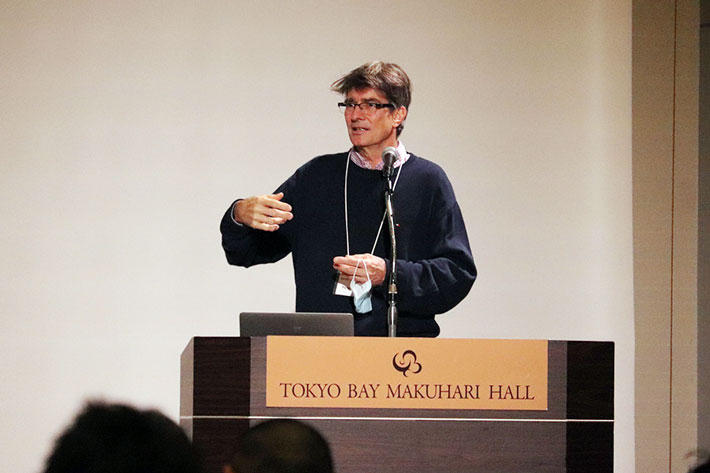
Professor Peter Grutter
McGill University (Canada)
What can you learn about defects using AFM?
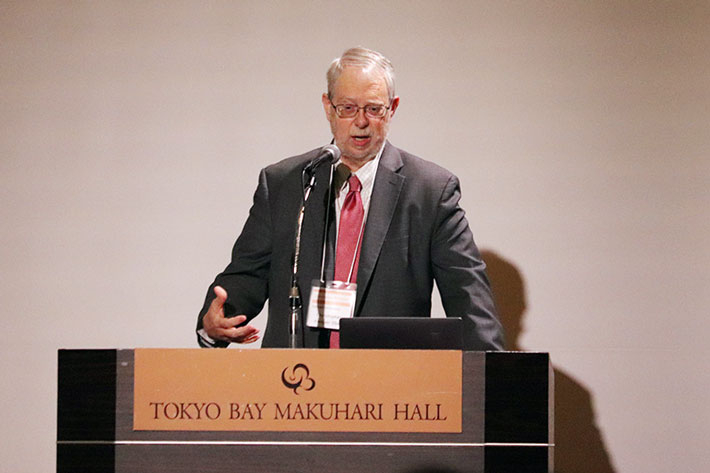
Professor Christopher Kemper Ober
Cornell University (USA)
Mixed Ionic/Electronic Conductors (MIECs) Based on π-Conjugated Thiophene Liquid Crystals
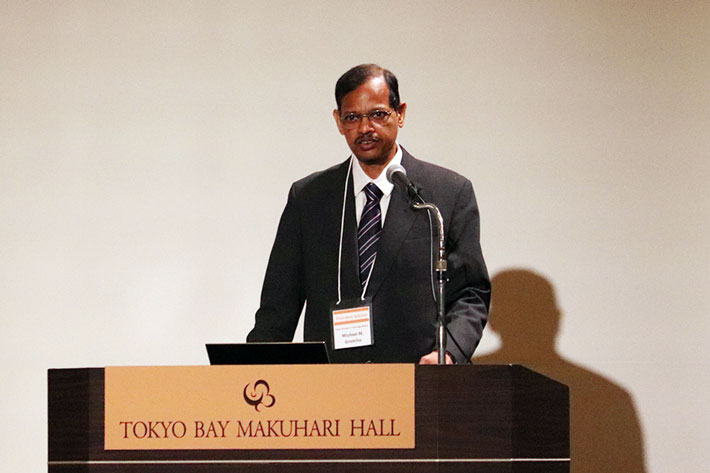
Professor M. Michael Gromiha
Indian Institute of Technology Madras (India)
Mutational effects on protein structure and function: implications to diseases
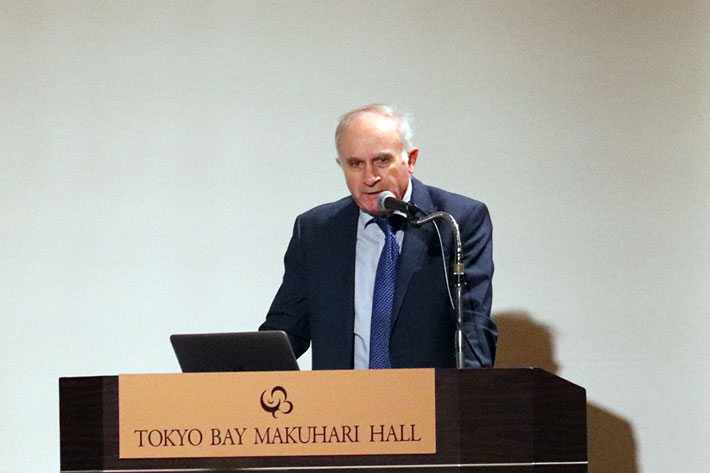
Professor Sergei Kazarian
Imperial College London (UK)
Recent applications of spectroscopic imaging to polymers and biomaterials
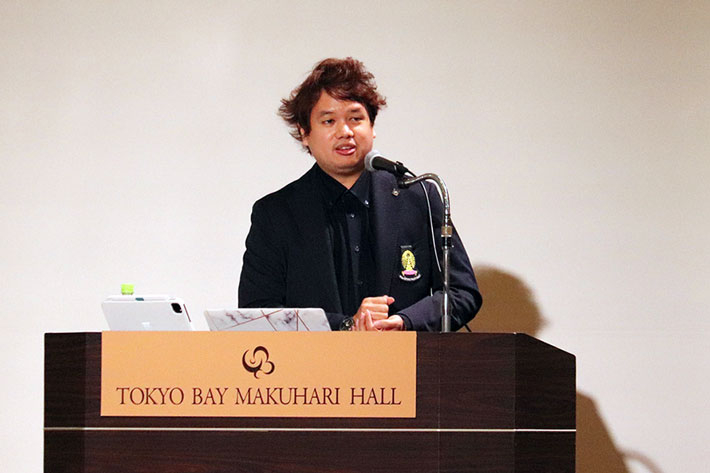
Associate Professor Natt Leelawat
Chulalongkorn University (Thailand)
Why do data and information systems play vital roles in disaster management?
These researchers also participate as overseas advisors in TAC-MI’s international mentoring system, which aims to pinpoint the strengths and weaknesses of each student through interviews. Five overseas advisors participating in this international forum met with TAC-MI students, offering advice and encouragement regarding the students’ research presentations.
The other five overseas advisors were not able to participate in this forum due to differences in time zones. These advisors watched recordings of student presentations at the international forum, and then held online interviews and offered valuable advice to these students after the completion of the actual forum.
Awards ceremony
At the awards ceremony on December 7, Best Presentation Awards were awarded to the most highly evaluated 1st-year doctoral students of TAC-MI and participating overseas students by the audience. Good Presentation Awards were also awarded to runners-up.
TAC-MI’s award winners
Best Presentation Award
- Soto Anno, Computer Science
- Yuna Tatsumi, Materials Science and Engineering
Good Presentation Award
- Ryo Kainuma, Physics
- Takumi Yamamoto, Materials Science and Engineering
Overseas award winners
Best Presentation Award
Chenyun Yuan, Cornell University
Good Presentation Award
Megan Cowie, McGill University
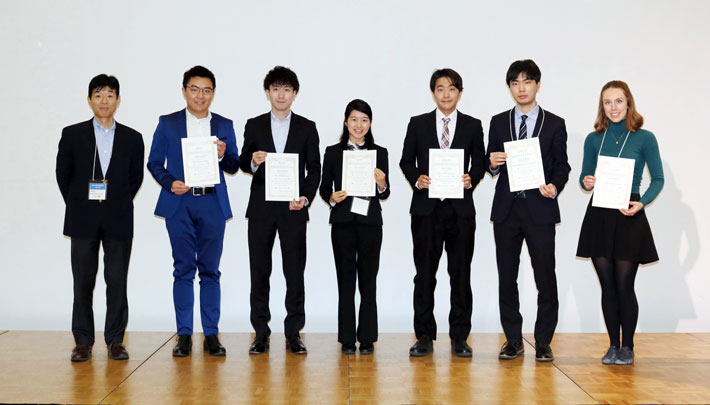
TAC-MI Director Takeo Yamaguchi (far left) with award winners
TAC-MI students’ interviews with industrial mentors
During the International Forum, TAC-MI doctoral students also conducted interviews with and received advice from their industrial mentors. TAC-MI students have the advantage of evaluating their strengths and weaknesses in face-to-face meetings with researchers, developers, technical experts, product planners, and marketing professionals from various industries. One industrial mentor is assigned to each student. Throughout the duration of this program, each student has an industrial mentor who continuously guides the student from enrollment to program completion.
Deepening exchanges with companies and overseas counterparts
This three-day event not only offered students the opportunity to deepen exchanges through discussions, presentations, and shared free time, but also opened up new perspectives to Tokyo Tech faculty members, overseas advisors, and industrial collaborators.
Through its International Forums and other events, TAC-MI continues to cultivate multi-talented individuals required by industry who apply broad, global perspectives to create innovative ideas through a combination of materials and informatics.
What is TAC-MI?
TAC-MI, established in January 2019 under the auspices of the Doctoral Program for World-leading Innovative & Smart Education (WISE) of the Ministry of Education, Culture, Sports, Science and Technology, aims to cultivate multi-talented individuals who can play a leading role in creating new industries and academic fields involving materials science, information science, and social services. The program also places strong emphasis on working closely with industry.







